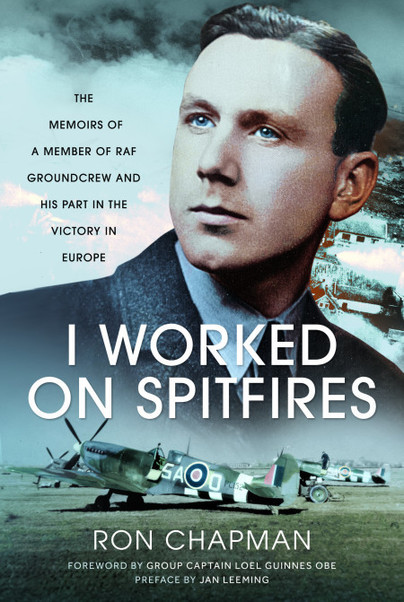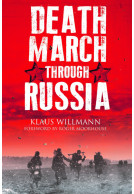I Worked on Spitfires (ePub)
The Memoirs of a Member of RAF Groundcrew and his Part in the Victory in Europe
Imprint: Air World
File Size: 3.9 MB (.epub)
Pages: 248
ISBN: 9781399057288
Published: 25th July 2024
| Other formats available - Buy the Hardback and get the eBook for £1.99! | Price |
|---|---|
| I Worked on Spitfires Hardback Add to Basket | £25.00 |
It was the night of 7 September 1940 which changed Ron Chapman’s life. It was the start of Hitler’s Blitz on London. The death and destruction the German bombers wreaked across Islington and the East End so shocked and appalled Ron, that three days later he presented himself to the RAF recruiting office near Euston station. After basic training, and a few days before his twentieth birthday, he received a posting to 485 (New Zealand) Squadron – Ron was at last with an operational Spitfire squadron.
After just three weeks with 485 (NZ) Squadron, he was posted to 341 (Free French) Squadron. Operating as part of the RAF’s 145 Wing in 84 Group, the squadron was led by the renowned Commandant René Mouchotte DFC, while 145 Wing itself was commanded by the Battle of Britain fighter ace Group Captain ‘Sailor’ Malan. There was also 340 Squadron, known as ‘Churchill’s Own’, and Nos. 329 and 345 squadrons.
As a member of 341 Squadron’s groundcrew, Ron Chapman’s memoirs provide a unique insight into the functioning of a fighter unit from the perspective of fitters, riggers, and armourers. But, in addition, his service with the Free French fighter squadrons adds greatly to our knowledge of this important part of the RAF’s history.
As an element of the 2nd Tactical Air Force, 84 Group was continually moved from airfield to airfield across the South Coast. The idea was to get the squadrons accustomed to nomadic conditions. After the D-Day invasion plans were finally unveiled, the squadron’s groundcrew and support staff were eventually trucked to Gosport where they boarded the landing craft that would transport them across the Channel as part of Operation Overlord. They landed at Arromanches-les-Bains in August.
Ron’s story then follows the actions of 145 Wing, as it battled the Luftwaffe across Europe. As the Allied forces moved eastwards, so Ron and the groundcrew moved with them through France, Belgium and finally into Germany. Ron remained with 341 Squadron until the end of the war.
This book is far more than a personal memoir, it is the largely neglected story of the French fighter wing throughout the years when the 2nd Tactical Air Force moved on to the offensive against the Luftwaffe. It will undoubtedly become recognised as an important addition to the history of the RAF.
As featured in
Scramble 1940 – Official Newsletter of the Battle of Britain Historical Society – Spring/Summer 2025
As featured in
Aviation News - November 2024
"This book is a gem!"
Flypast - November 2024
"It is one of the very few accounts to have been written by one of ‘the many’ without whom ‘The Few’ could not have succeeded. The author joined up in late 1941 and was trained as an armourer, initially serving at a gunnery school. However, shortly before D-Day he joined a ‘Free French’ Spitfire squadron with which he served until the end of the war. The second half of this highly readable account is in effect a detailed history of the Free French Spitfire Wing during the last year of the war. That in itself is hugely welcome, but even more so is the description of the itinerant life of a 2nd Tactical Air Force fighter unit in the months after D-Day and the often-miserable conditions endured by the hardworking and ever faithful groundcrew. No less valuable is the earlier description of life for a working-class family in London during the inter-war years. A peach of a book that was unputdownable."
Andrew Thomas - Author and Historian
About Ronald L Chapman
RONALD L. CHAPMAN was born in Islington in April 1924. He was educated at Barns Park School and Thornhill Road School for Boys and St Thomas’s School for Boys. His first job was as an office boy at a company of watchmakers. Though his brother joined the British Army, Ron was determined to be a member of the RAF, having watched the valiant pilots of Fighter Command defending London. Ron spent five years in the RAF, writing his memoirs in 1986. Ron spent many years working in the furniture industry after the war in commercial roles for various companies. After the passing of his wife in 1976 he focussed on bringing up his two sons. He passed away in November 1996.
















